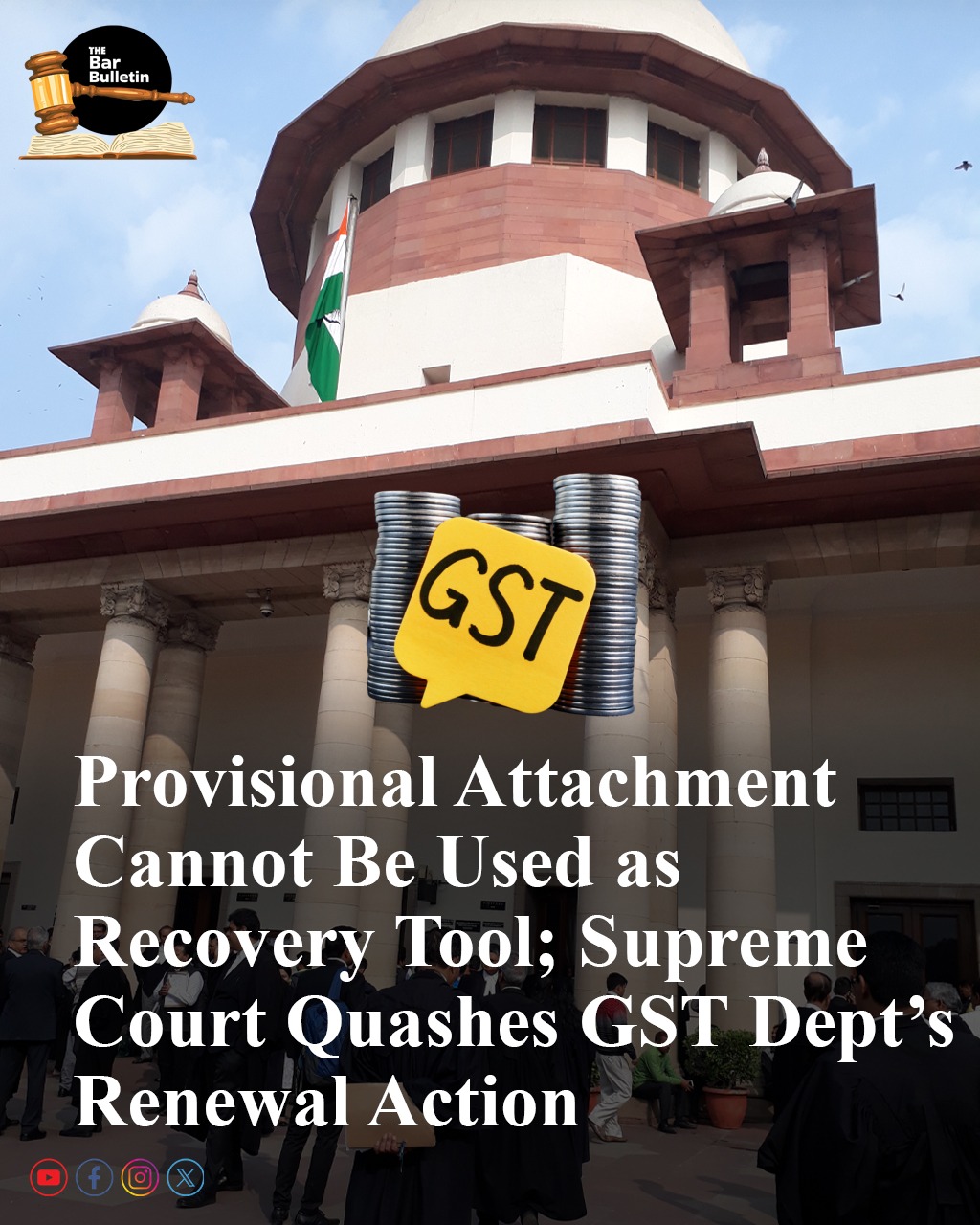While explaining the maxim “ut res magis valeat quam pereat”, the Supreme Court emphasized that a statute is to be interpreted in a way that gives the law force rather than makes it fail, and therefore, allowing the Revenue Department to issue fresh provisional order of attachment after initial order lapsed by operation of law, or to renew such lapsed order, would render text of Section 83(2) of the CGST Act, 2017, otiose. Accordingly, the Court also quashed the fresh attachment orders.
The Division Bench comprising Justice Dipankar Datta and Justice Augustine George Masih observed that there is a complete absence of any executive instruction consistent with the legislative policy and intendment of the CGST Act authorizing renewal of a lapsed provisional attachment order. That apart, having regard to the draconian nature of power conferred on the revenue by sub-section (1) of Section 83 of the CGST Act to levy a provisional attachment, the terms of the entire section have to be construed in a manner so that sub-section (2) of Section 83 is not effectively reduced to a dead letter.
The Bench went on to observe that fresh issuance of a provisional attachment order premised on substantially the same grounds as the earlier one would be in disregard to the safeguard provided u/s 83(2), and to permit any other interpretation would result in an abuse of law and due process. Further, repeated or continuous issuance of a provisional attachment order, with no change in circumstances, under the garb of ‘renewal’, could lead to a serious anomaly.
While clarifying that the provisional attachment is a pre-emptive measure to protect the interests of government revenue, and it cannot function as a recovery measure, the Bench observed that short-circuiting the procedure by pursuing a provisional attachment as a means to recover the tax due, as a natural consequence, would frustrate the intent and purpose of the CGST Act, and therefore, the provisional attachment orders shall be quashed and the attachment over the Appellants’ bank account be lifted.
Briefly, challenging the provisional attachment orders issued u/s 83 of the CGST Act, the Appellant had canvassed that prior to the order of provisional attachment being passed, the Department had issued another set of provisional attachment orders, against which the appellant had filed its objections by submitting a representation under Rule 159(5) of the CGST Rules 2017. It was submitted that despite having received the Appellant’s representation, the Department kept it pending, and when the first set of provisional attachment orders had lapsed, then even without having jurisdiction, the Department proceeded to pass a fresh set of provisional attachment orders, which was nothing but a deemed renewal of the old set of orders. Hence, the Appellants’ main prayer was quashing of the new set of provisional attachment orders and lifting of the attachment placed over the Appellants’ bank accounts.
Cases Relied On:
State of Odisha v. Satish Kumar Ishwardas Gajbhiye (2021) 17 SCC 90
Rai Sahib Ram Jawaya Kapur v. State of Punjab AIR 1955 SC 549
Lohia Machines Ltd. v. Union of India (1985) 2 SCC 197
Appearances:
Advocate Taruna Singh Gohil, for the Appellants
Advocate Deepanwita Priyanka, for the Respondent



